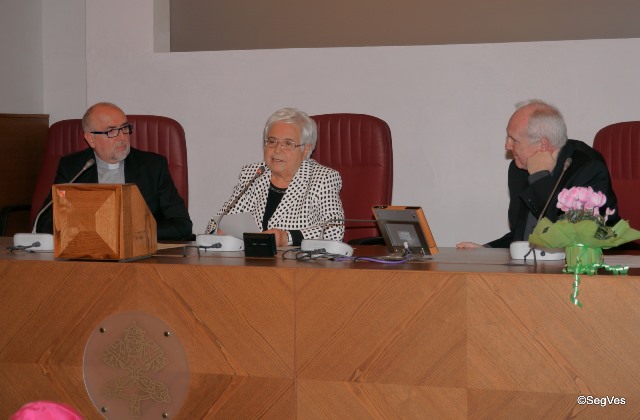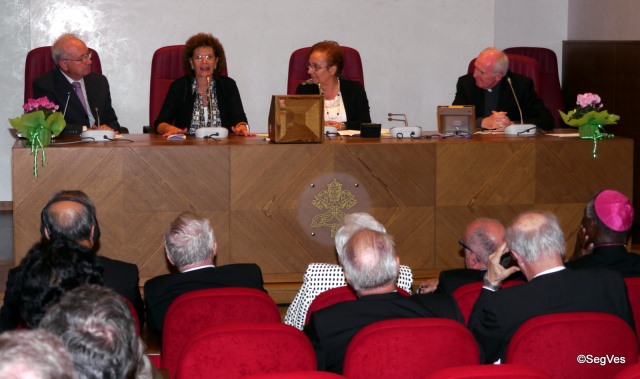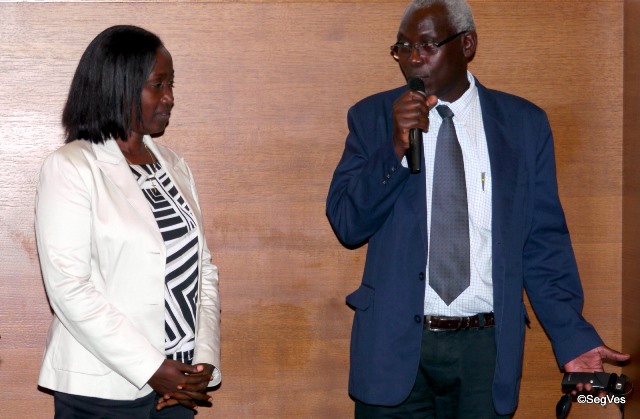undefined

“How often do we parents make mistakes with our children? At times we’re too permissive, at times possessive, weak or inflexible when there’s no need to be. This is where the ‘begin again’ rule must apply, always being willing to recognise our mistakes and ask forgiveness. And when it’s a son or daughter who has erred, invite them to see their mistake, but at the same time demonstrate your trust.”
Often wounded internally by betrayals and guilty silences, the family remains an irreplaceable setting where life is generated and transmitted. Anna Friso (New Families) went on to say that anyone who works alongside families today has decided to live life on the “peripheries” because, “as Pope Francis says, a person is not a Christian in order to stay in the camp but to go into the peripheries of the world.” “And in the peripheries,” Friso continued, “a Christian cannot ask whether people are married in the Church, whether they live together or are separated. We welcome all just as they are. We love them, listen to them deeply and try to help them with their needs if we can. And, at the right moment, to each and every person, no matter the situation or background, we extend the same message: God loves you immensely. No human being is excluded from God’s love.”

Then Paolo R. spoke who, although alone, remained in his marriage. It was a painful story that began with the abandonment by his wife, going through the separation and lawyers, until he found himself in an “interior desert.” But he decided to “wait” because “that,” he said, “is what Christian marriage is: a sealed box. You put your life in God’s hands, through the sacrament, through the person you marry, the person you’re in love with . . . but then love needs to be constructed, even amidst pain, one day after the other.”

Also present at the meeting were Dieudonne and Emerthe Gatsinga, a couple from Kigali in Rwanda who are auditors at the Synod. They shared their experiences of accompanying families, newlyweds and engaged couples, mainly in their own country, but also in Uganda, Burundi, Kenya and Congo. He is a gynaecologist, she is an economist. They were presented to the Pope: “When we married we promised not to be closed in on ourselves, but to give ourselves to others. That was 26 years ago. Now we have 8 children, 4 of whom are adopted, orphans of the Rwandan Genocide. It wasn’t easy to take care of 8 children during a period of social and economic crisis in our country and with so many painful memories behind us. But God helped us and now they our children are all grown: two of them have made us the grandparents of three children.” Their stories brought to life a text written by Chiara Lubich and read by Cardinal Ennio Antonelli during the meeting: “Only one thing constitutes, binds, and makes a family: love. . . When this love is burning in the hearts of each member of the family, then it’s alive, there are no unsolvable problems, no insurmountable obstacles, and no weeping over irreparable failures.”
(Source: SIR)

